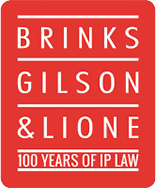Brief Background
The U.S. Supreme Court has agreed to hear a case that will likely determine whether the United States Patent and Trademark Office’s ban on "scandalous" and “immoral” trademarks violates the First Amendment. In re: Brunetti, 877 F.3d 1330 (Fed. Cir. 2017)
Mr. Erik Brunetti sought to register the word mark “FUCT,” in connection with clothing. The examining attorney at the United States Patent and Trademark Office (“USPTO”) refused registration under Section 2(a) of the Lanham Act, on the basis that the mark was vulgar, and therefore “immoral” or “scandalous.” The Trademark Trial and Appeal Board (“TTAB”) upheld the examining attorney’s decision on appeal. Mr. Brunetti then appealed the TTAB’s decision to the Federal Circuit. The Federal Circuit requested additional briefing from the parties following the Supreme Court’s decision in Matal v. Tam, 137 S.Ct. 1744 (2017), which held that Section 2(a)’s prohibition on registering “disparaging” trademarks is unconstitutional under the First Amendment. In December 2017, the United States Court of Appeals for the Federal Circuit issued a unanimous ruling declaring unconstitutional Section 2(a) of the Lanham Act, 15 U.S.C. § 1052(a), which prohibits the registration of “immoral” or “scandalous” trademarks. On January 4, 2019, the Supreme Court granted certiorari to the USPTO, which is seeking to restore Section 2(a)’s ban on “scandalous” and “immoral” marks.
Federal Circuit Decision
The Federal Circuit held that Section 2(a)’s immorality and scandalousness provision regulates the expressive speech components of a trademark, such that the constitutionality of the provision is subject to strict scrutiny. The Federal Circuit found that under the strict scrutiny standard “[t]here is no dispute that Section 2(a)’s bar on the registration of immoral and scandalous marks is unconstitutional.” Further, the Federal Circuit found that Section 2(a)’s bar on immoral and scandalous marks was unconstitutional, even if it was treated as a regulation of purely commercial speech under an intermediate scrutiny framework. The Federal Circuit found that “the government does not have a substantial interest in protecting the public from scandalousness and profanities,” among other things.
USPTO’s Petition for Writ of Certiorari
While the USPTO recognized the Supreme Court’s ruling in Matal v. Tam, it argued in its certiorari petition that Section 2(a)’s prohibition against scandalous marks should be treated differently. Specifically, the USPTO states that “[Section 2(a)] does not prohibit any speech, proscribe any conduct or restrict the use of any trademark.” Instead, “[t]he scandalous-marks provision simply reflects Congress’s judgment that the federal government should not affirmatively promote the use of graphic sexual images and vulgar terms by granting them the benefits of registration.” The USPTO argues that Section 2(a) does not prohibit or restrict speech, but establishes permissible eligibility requirements for a federal trademark registration – requirements that are properly viewpoint-neutral.
Implications
While the USPTO has suspended action on trademark applications that otherwise would have been refused on the basis of Section 2(a)’s prohibition against scandalous marks, the petition notes that many such applications, including those covering “highly offensive, even shocking, images” have been filed. These applications are likely to register should the Supreme Court affirm the Federal Circuit decision, provided they meet the remaining statutory requirements for registration.





 />i
/>i
